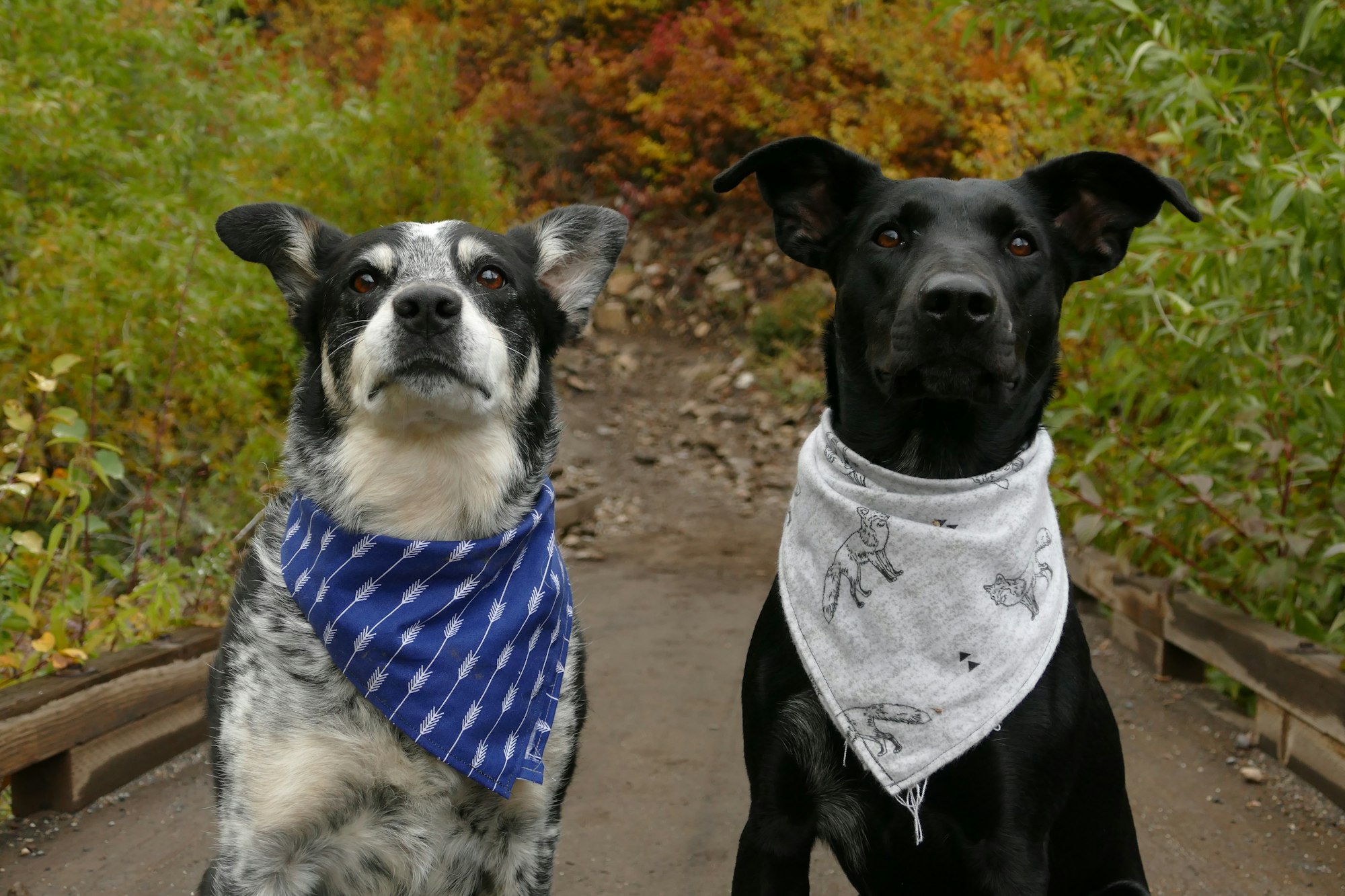When it comes to our furry companions, understanding how dogs age is crucial for providing them with the best care throughout their lives. Dogs age at a faster rate than humans, undergoing various physiological and behavioral changes. In this article, we'll explore the different stages of a dog's life, the factors influencing their aging process, and tips for ensuring their well-being at every age.

Puppyhood: The Formative Years
Puppyhood is a crucial stage in a dog's life where the foundation for their adulthood is laid. During this time, puppies undergo rapid physical and mental development. Here are some key aspects to consider during this stage:
1. Early Development and Socialization
Puppies are like sponges, absorbing everything around them. Socialization with people, other animals, and various environments is vital for developing their confidence and reducing the risk of behavioral problems later in life.
2. Growth Spurts and Teething
Puppies experience growth spurts during their first year, and their baby teeth start falling out to make way for permanent ones. Providing appropriate chew toys can help alleviate discomfort during teething and prevent destructive chewing behaviors.
3. Basic Training and Housebreaking
Introducing basic commands and housebreaking during puppyhood sets the stage for a well-behaved adult dog. Positive reinforcement techniques work best, and consistency is key to successful training.
Adolescence: The Teenage Phase
As puppies transition into adolescence, usually around 6 to 18 months, they undergo various changes that can be challenging for both the dog and their owner.
1. Hormonal Changes and Behavior Shifts
Hormones surge during adolescence, leading to behavioral changes. Dogs might become more independent, test boundaries, and display selective hearing. This phase requires patience and continued positive reinforcement training.
2. Continued Training and Social Skills
Adolescence isn't the time to stop training; it's when training becomes even more significant. Reinforcing commands and maintaining socialization helps your dog become a well-mannered adult.
3. Dietary Adjustments for Growth
As dogs grow, their nutritional needs change. During adolescence, they require balanced meals to support their development. Consult with a veterinarian to ensure they're getting the right nutrients.

Adulthood: Prime Years
Adulthood marks the prime years of a dog's life, typically from 1 to 7 years, depending on breed and size. During this period, dogs settle into their adult personalities and habits. Here's what you should consider during this stage:
1. Maintaining Health through Exercise
Regular exercise is crucial for keeping adult dogs healthy and maintaining their weight. Activities like daily walks, playtime, and mental stimulation keep them physically and mentally engaged.
2. Nutritional Needs and Weight Management
As dogs reach adulthood, their nutritional needs change. Feeding a balanced diet that suits their breed, size, and activity level is vital. Avoid overfeeding to prevent obesity, which can lead to health issues.
3. Dental Care and Grooming Routine
Dental health is often overlooked but crucial. Establish a dental care routine, including regular brushing and dental chews. Grooming requirements vary by breed, so maintain an appropriate grooming schedule.
Mature Years: Navigating Seniority
As dogs enter their mature years, usually around 7 to 10 years, they transition into their senior phase. This is a time when they might start showing signs of aging that require special attention.

1. Recognizing Signs of Aging
Be vigilant for signs such as reduced energy levels, joint stiffness, and changes in behavior or appetite. Early detection of health issues enables timely intervention and a better quality of life.
2. Adjusting Diet and Exercise
Senior dogs have lower energy requirements, so adjust their diet accordingly to prevent weight gain. Provide them with joint-supporting supplements and low-impact exercises to keep them active.
3. Regular Vet Check-ups and Health Monitoring
Frequent vet check-ups become more crucial as dogs age. Regular screenings and tests can detect age-related health conditions early, allowing for effective management.
Golden Years: Embracing the Senior Stage
The golden years of a dog's life typically begin around the age of 10 and beyond. This is a stage where they require special attention and care to ensure their quality of life remains high.
1. Managing Age-Related Health Issues
Senior dogs are more susceptible to health issues such as arthritis, cognitive decline, and organ-related problems. Regular vet visits, proper medication, and a comfortable environment are essential to managing these issues.
2. Providing Comfort and Mental Stimulation
As dogs age, they may experience discomfort from joint pain and reduced mobility. Provide them with cozy beds and ensure they have easy access to their favorite spots. Mental stimulation through interactive dog toys and puzzles helps keep their minds active.
3. Specialized Diet and Medication
Senior dogs often have specific dietary requirements due to changes in metabolism and digestion. Consult with a vet to choose a diet that supports their aging needs. Additionally, medication and supplements may be necessary to address age-related conditions.
Factors Affecting Aging
Several factors influence how dogs age, including genetics, breed, size, and environment. Understanding these factors can help us provide better care for our furry companions.
1. Breed and Size Variations
Different breeds age at different rates. Smaller dogs generally have longer lifespans than larger breeds. For instance, a Great Dane is considered senior at around 6 years, while a Chihuahua might not be considered senior until around 10 years.
2. Genetics and Hereditary Factors
Genetics plays a significant role in how dogs age and the health conditions they may face. Certain breeds are prone to specific genetic health issues, so it's critical to be aware of potential risks.
3. Environmental Influences
A dog's environment can impact their aging process. A healthy diet, regular exercise, and a stress-free environment can contribute to a longer and healthier life. On the other hand, exposure to toxins, poor living conditions, and lack of mental stimulation can accelerate aging.
Caring for the Aging Dog
As our beloved companions enter their senior years, they require special care and attention to ensure their comfort and health.
1. Balanced Diet and Dog Nutrition
A balanced diet tailored to senior dogs' needs is crucial. Look for dog food formulated for older dogs, which often contains joint-supporting ingredients and fewer calories to manage weight.
2. Regular Exercise and Mental Stimulation
While exercise needs may decrease, maintaining regular gentle exercise is important to keep joints mobile and muscles toned. Mental stimulation through puzzle toys and interactive games helps prevent cognitive decline.
3. Quality Sleep and Comfortable Environment
Provide your senior dog with a cozy bed that supports their joints. Ensure their living environment is comfortable and free from hazards that might cause accidents.
Signs of Aging
Recognizing the signs of aging in your dog allows for early intervention and better management of age-related issues.
1. Decreased Energy Levels
If your dog is less active than usual, it might be a sign of aging. While they might not have the same stamina as before, any sudden or extreme lethargy should be addressed with a vet.
2. Joint Stiffness and Mobility Issues
Difficulty getting up, climbing stairs, or jumping onto furniture can indicate joint stiffness or arthritis. Consulting a vet for pain management options is crucial.
3. Changes in Appetite and Weight
Senior dogs might have changes in appetite due to dental issues or changes in metabolism. Monitor their weight and consult with a vet if you notice significant changes.
Senior Dog Healthcare
As dogs enter their senior years, their healthcare needs change, requiring specific attention and care to ensure their well-being.

1. Regular Vet Visits and Screenings
Frequent veterinary check-ups become increasingly important for senior dogs. Regular screenings can help detect potential health issues early on, leading to more effective treatment and management.
2. Dental Care and Hygiene
Maintaining good dental health is crucial for senior dogs. Regular dental check-ups and cleanings are essential to prevent dental diseases that can affect their overall health. Dental issues can lead to pain, discomfort, and even systemic health problems.
3. Pain Management and Medications
Senior dogs are more prone to age-related conditions such as arthritis and joint problems. Consult with a veterinarian to develop a pain management plan that may include appropriate medications, supplements, and treatments to improve their comfort and quality of life.
4. Proper Nutrition and Diet
As dogs age, their nutritional needs may change. Senior dog food formulations are designed to meet the unique dietary requirements of older dogs. These formulations typically contain joint-supporting ingredients and are tailored to support their overall health.
5. Monitoring Weight and Body Condition
Maintaining a healthy weight is essential for senior dogs, as excess weight can exacerbate age-related health issues. Regularly monitor your dog's weight and body condition, and consult your vet if there are any significant changes.
6. Mental and Cognitive Health
Just like physical health, mental and cognitive health is crucial for senior dogs. Engage them in mentally stimulating activities, provide puzzle toys, and continue training sessions to keep their minds active.
7. Mobility and Exercise
While their exercise needs may decrease, it's essential to keep senior dogs moderately active to prevent muscle loss and joint stiffness. Tailor exercise routines to their individual needs, and be cautious not to overexert them.
Emotional Well-being
Just like humans, dogs experience a range of emotions that can impact their overall well-being. Paying attention to their emotional needs is crucial, especially as they enter their senior years.
1. Providing Love and Attention
Senior dogs thrive on companionship and love. Spend quality time with your aging furry friend, engage in gentle play, and offer plenty of affectionate gestures. Simple actions like petting, cuddling, and speaking in soothing tones can make a significant difference in their emotional state.
2. Addressing Separation Anxiety
Separation anxiety can intensify in senior dogs, making them more anxious when left alone. Gradually acclimate them to being alone by starting with short periods and gradually increasing the time. Consider leaving behind comforting toys or items that have your scent to provide a sense of security.
3. Incorporating Routine and Familiarity
Maintaining a consistent routine and familiar environment is essential for senior dogs' emotional well-being. Predictable schedules and familiar surroundings help reduce stress and anxiety. Even minor changes can be distressing, so strive to create a stable environment for your aging companion.
4. Engaging in Gentle Activities
While intense physical activities might be limited for senior dogs, engaging in gentle activities that they enjoy can boost their mood and mental well-being. Short walks, easy games, and interactive toys can provide mental stimulation and keep them emotionally engaged.
Dog Age Interesting Facts
While we're familiar with the saying "one dog year equals seven human years," the reality of dog aging is more nuanced and fascinating. Here are some interesting facts about how dogs age:
- Different Breeds, Different Rates: The one-size-fits-all "seven years to one" rule isn't accurate. Smaller breeds tend to live longer than larger breeds, and the aging process can vary significantly depending on the breed and size.
- First Year: Rapid Growth: In the first year of a dog's life, they experience the most rapid growth and development. Puppies can mature from a newborn to a young adult in just twelve months.
- Adulthood Length Varies: The length of a dog's adulthood phase varies by breed. Small dogs might reach their senior years by the time they're 7, while larger breeds might still be in their prime at that age.
- Longevity Champions: Some breeds are known for their exceptional longevity. The Dachshund, Chihuahua, and Miniature Poodle are among the breeds that tend to live longer than others.
- Size Matters: Size plays a significant role in how dogs age. Smaller breeds tend to live longer than larger breeds, with some small breeds living well into their late teens.
- Age-Related Health Concerns: Just like humans, older dogs are prone to age-related health concerns such as arthritis, dental issues, and cognitive decline. Regular vet check-ups and proper care can help manage these issues.
- Genetic Influence: Genetics play a crucial role in determining a dog's lifespan and how they age. Some breeds have genetic predispositions to specific health issues that can impact their aging process.
- Emotional Changes: Dogs can experience emotional changes as they age, including changes in behavior, mood, and attachment to their human companions. Providing emotional support becomes even more dominant in their later years.

FAQs About Dog Aging
Q1: What is the average lifespan of a dog?
- Dogs generally live between 10 to 13 years, but this can vary based on factors like breed, size, and genetics.
Q2: Are there breed-specific variations in aging?
- Yes, different breeds have varying lifespans and susceptibility to certain age-related health conditions.
Q3: How can I help my senior dog stay mentally active?
- Engage them with puzzle toys, teach new tricks, and maintain social interactions to keep their minds sharp.
Q4: Should I adjust my dog's diet as they age?
- Yes, senior dogs require a diet tailored to their changing nutritional needs and potential health issues.
Q5: What are some common health issues in older dogs?
- Arthritis, dental problems, vision and hearing impairments, and cognitive decline are common issues in senior dogs.




